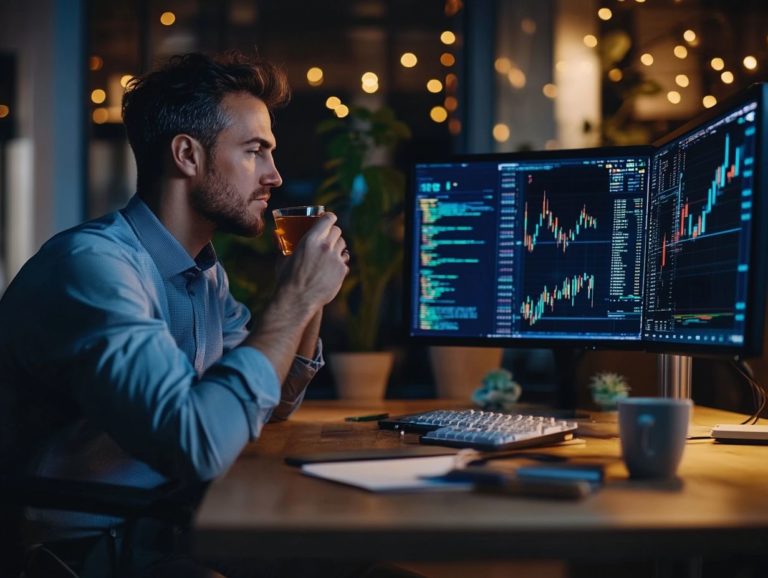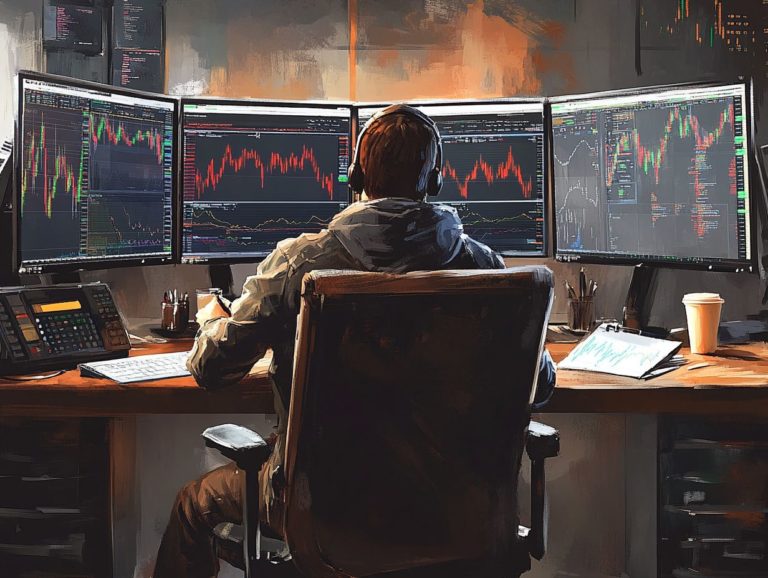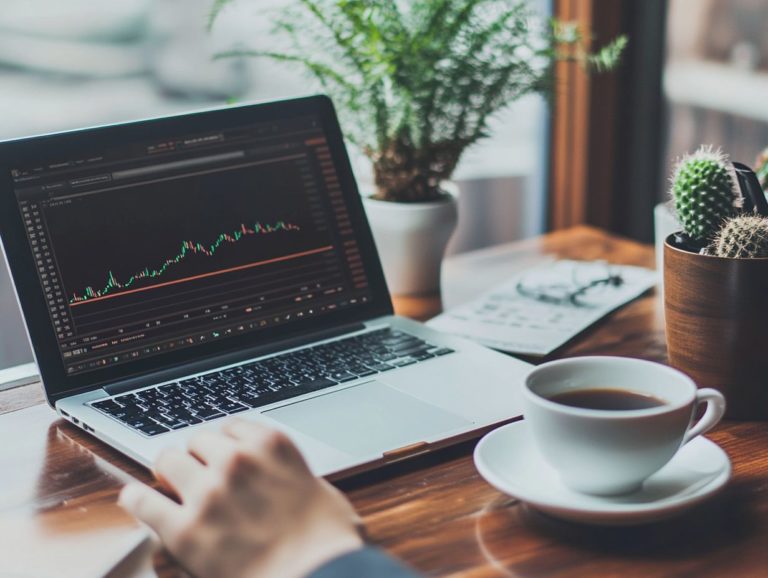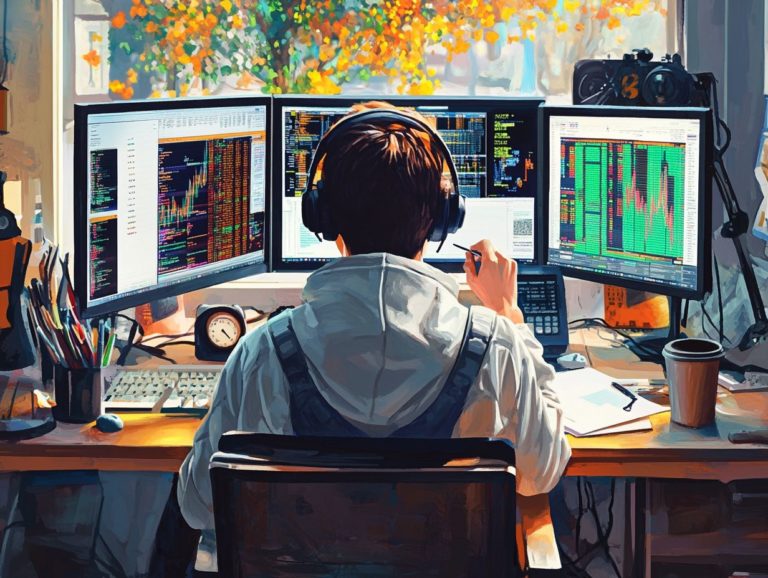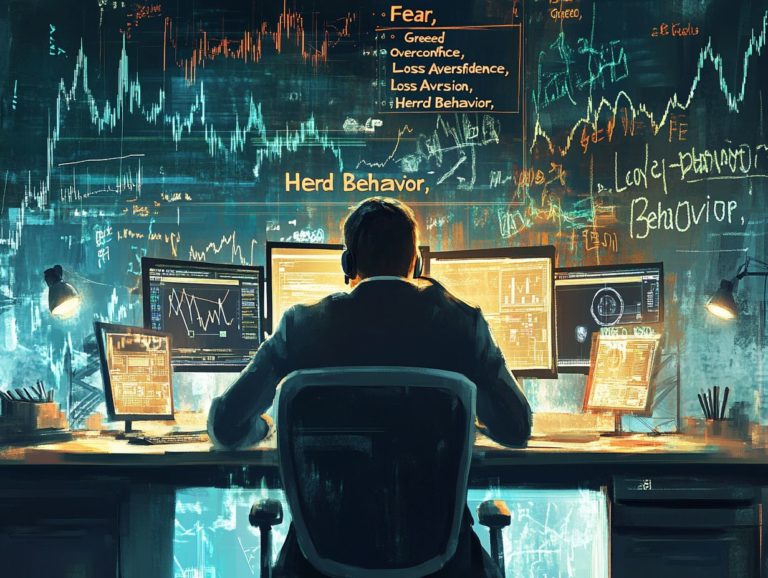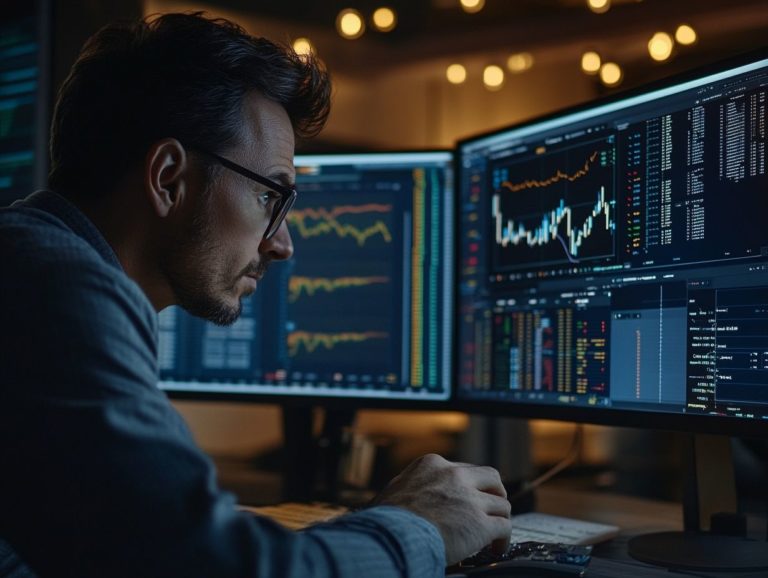The Effect of Peer Pressure on Trading Decisions
In the fast-paced world of trading, the influence of peer pressure can profoundly shape your decision-making processes. You may find yourself caught in the tide of fear of missing out (FOMO) or swept along by the herd mentality, swayed by the actions and opinions of those around you.
This exploration delves into the psychological factors at play, highlighting how peer pressure can lead to risky behaviors and impulsive choices that threaten your long-term strategies.
You’ll uncover practical ways to manage these influences, empowering you to remain steadfast in your trading plan for more successful outcomes.
Contents
- Key Takeaways:
- The Influence of Peer Pressure on Trading Decisions
- Psychological Factors at Play
- How Peer Pressure Affects Trading Decisions
- Managing Peer Pressure in Trading
- Frequently Asked Questions
- 1. How does peer pressure affect trading decisions?
- 2. What are some negative effects of peer pressure on trading decisions?
- 3. Can peer pressure also have positive effects on trading decisions?
- 4. How can one avoid succumbing to peer pressure in trading decisions?
- 5. What are some alternative sources of advice besides peer pressure for trading decisions?
- 6. How can peer pressure be beneficial for trading decisions?
Key Takeaways:
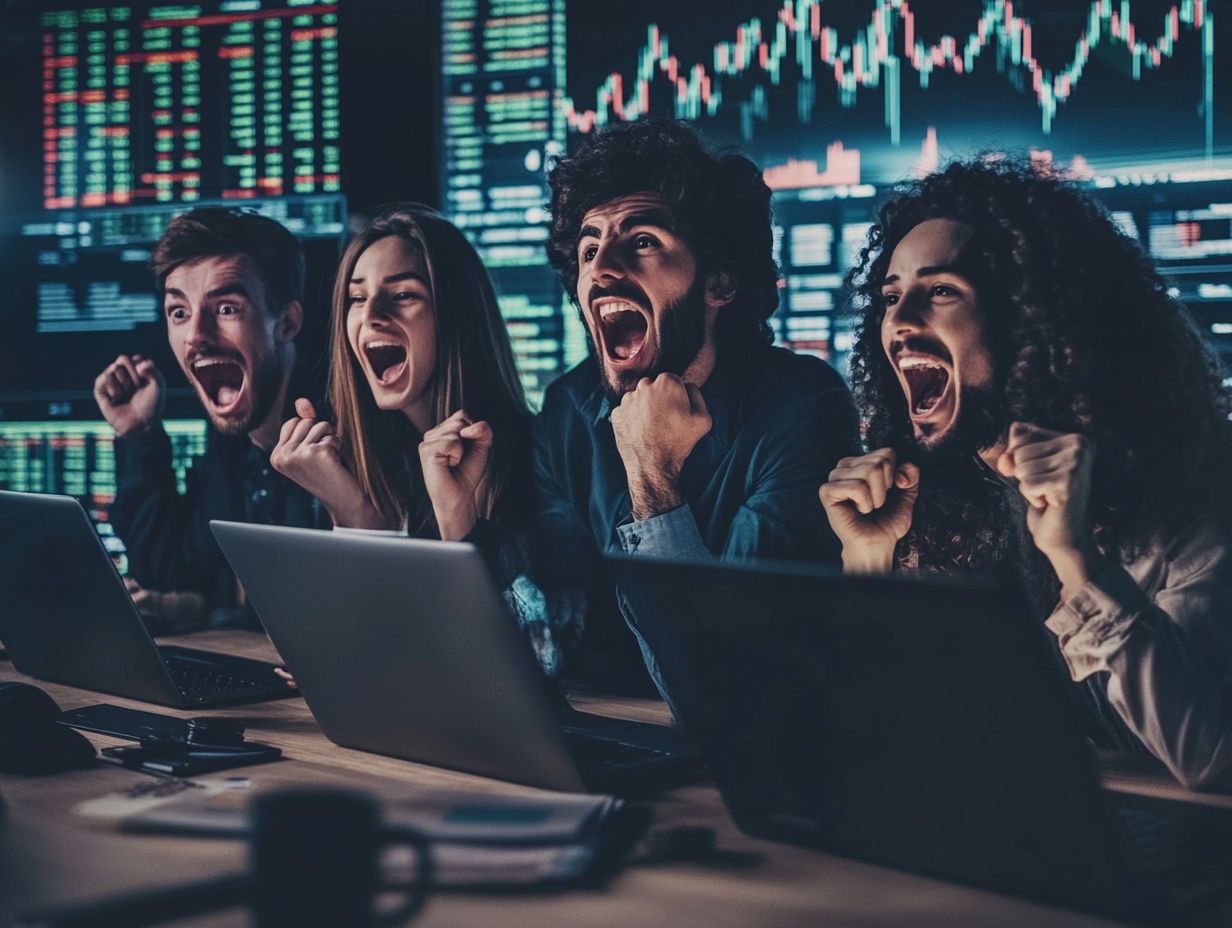
- Peer pressure can have a significant impact on trading decisions, leading to risky behavior and impulsive decisions.
- The fear of missing out (FOMO) and herd mentality are common psychological factors that influence trading decisions.
- To manage peer pressure, it is important to have a strong trading plan and stick to your own strategy, rather than succumbing to external influences.
The Influence of Peer Pressure on Trading Decisions
Peer pressure plays a significant role in shaping your trading decisions as an investor in financial markets, influencing your behaviors and strategies in both the stock and cryptocurrency arenas. Grasping how these peer effects unfold can shed light on the social learning dynamics that guide your trading actions, whether you re buying or selling stocks.
This behavior often creates feedback loops, prompting you to adjust your decisions based on the actions of those around you. Such dynamics can lead to potential market bubbles and increased volatility. Recognizing the impact of herd behavior on your individual decision-making processes is essential, especially in the context of trading.
Understanding Peer Pressure in Trading
Understanding peer pressure in trading requires you to delve into how the influence of social media on trading psychology shapes your decision-making processes, including your search behaviors and thinking limits.
This behavior often encourages you to mimic the actions and strategies of those around you, whether you re aware of it or not. It can greatly affect your trading outcomes. For instance, when a wave of traders begins purchasing a particular stock based on a trending community opinion, you ll feel a strong pull to jump in, driven by the fear of missing out.
This not only exemplifies a common psychological reaction but also reveals the cognitive limitations you may face as a trader. Such behaviors underscore how differing risk attitudes among traders can alter the collective sentiment, ultimately swaying market trends in ways that can be both surprising and unpredictable.
Psychological Factors at Play
Psychological factors, such as the Fear of Missing Out (FOMO) and herd mentality, significantly impact your trading decisions. These influences can lead you to align your choices with the perceived actions of your peers, often overshadowing any potential thinking limits or the inherent risks involved.
Fear of Missing Out (FOMO)
Fear of Missing Out (FOMO) in trading can often propel you into impulsive decisions, leading to costly mistakes, especially in the tumultuous backdrop of market volatility.
This phenomenon reveals itself in various forms like when you hastily dive into a stock that s on a rapid ascent, driven by social media chatter and the nagging worry of missing potential gains. Imagine the scenario during a bullish trend: you might find yourself swept up in the excitement, ignoring the fundamentals or your carefully crafted trading strategy.
The grip of FOMO can spiral into a cycle of emotional trading, where decisions are made on a whim, frequently resulting in significant losses instead of the expected windfalls.
Over time, this behavior distorts the market landscape, where prices may be influenced more by sentiment than by genuine value, ultimately jeopardizing overall market stability.
Herd Mentality
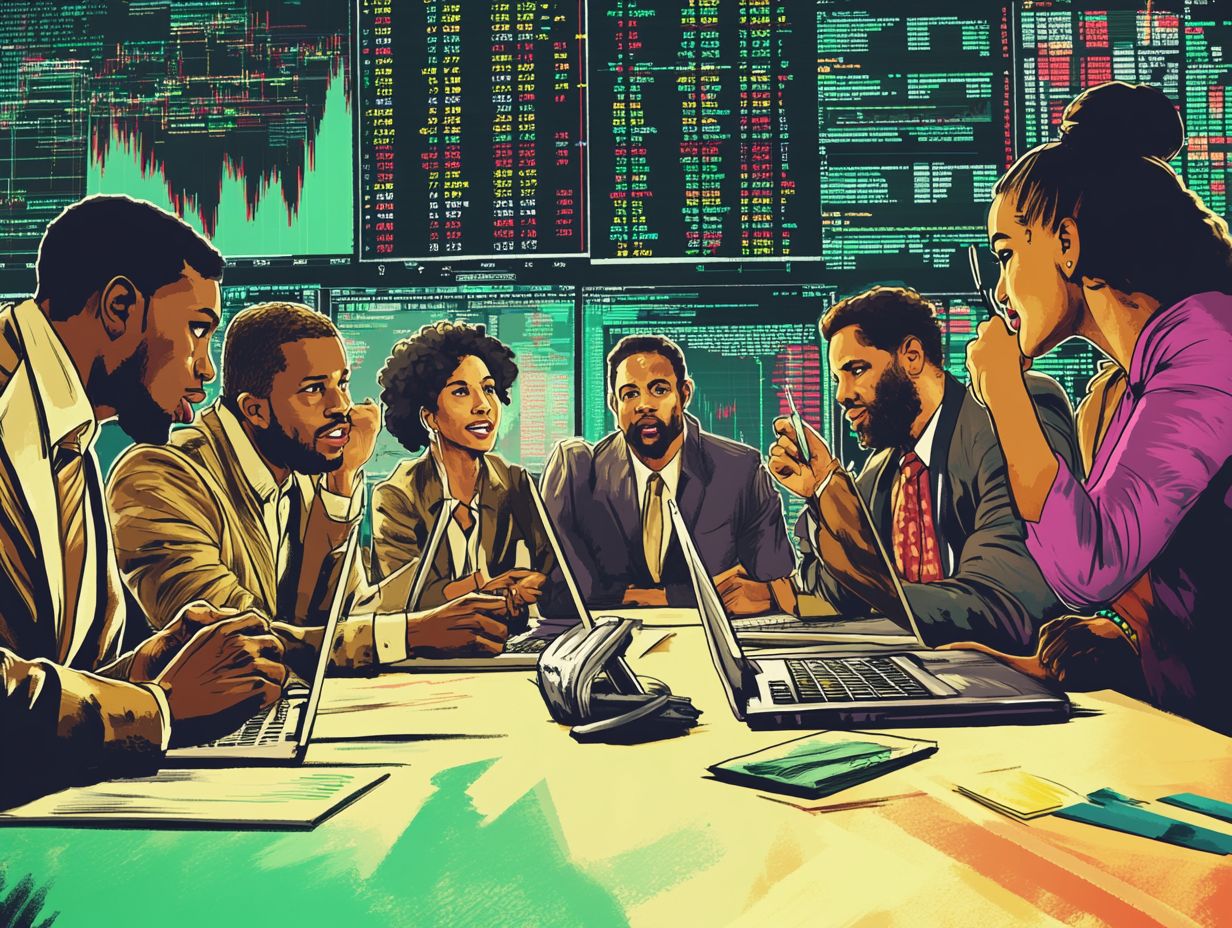
Herd mentality in trading means following the crowd. This instinct can greatly influence your trading decisions.
When many traders are making moves, it s easy to join them. This often creates market trends that may cloud your judgment.
This collective behavior can significantly affect market dynamics. You might ignore your own analysis just to fit in, which can amplify price movements.
When optimism is high, traders may overlook important fundamentals, chasing quick gains instead. Conversely, fear can lead to panic selling and sharp declines.
These swings distort your risk attitudes and can distort overall market behavior. They can lead to bubbles and crashes.
Understanding this psychological factor is crucial for navigating volatile markets and making informed decisions.
How Peer Pressure Affects Trading Decisions
Peer pressure can strongly influence your trading choices. It may push you towards risky behaviors and impulsive decisions that disrupt your long-term plans.
In social learning, you may adapt your strategies based on what others do. This can complicate your trading journey.
Risky Behavior and Impulsive Decisions
Risky behaviors often arise in trading, especially under peer pressure. This can lead to mistakes and increased market volatility.
You might find yourself abandoning your strategies to follow popular sentiment. When peers profit from a trending stock, the urge to act quickly can overwhelm you.
This impulsiveness raises the risk of poor decisions and enhances the herd mentality. It can cause wild price fluctuations, unsettling even experienced investors.
Recognizing the connection between peer pressure and trading decisions is vital for achieving a more disciplined approach to investing.
Impact on Long-Term Strategy
Peer effects can significantly impact your long-term strategy. You may compromise your financial choices to fit in with short-term trends.
This can create a domino effect. You might abandon well-researched plans just to avoid feeling left out.
As you chase trends set by others, you may overlook fundamental analyses and your own risk assessments. This puts your financial stability at risk.
Consistency is key in trading. Stick to your personalized strategies even when external pressures mount.
Deviating from your plan can lead to poor investment choices and increased volatility in your portfolio.
Managing Peer Pressure in Trading
Managing peer pressure requires a well-crafted trading plan and solid decision-making strategies. These will help you stay true to your personal investment objectives.
With a strong plan, you can navigate the market with confidence and clarity. Don t let peer pressure derail your financial goals!
Developing a Strong Trading Plan
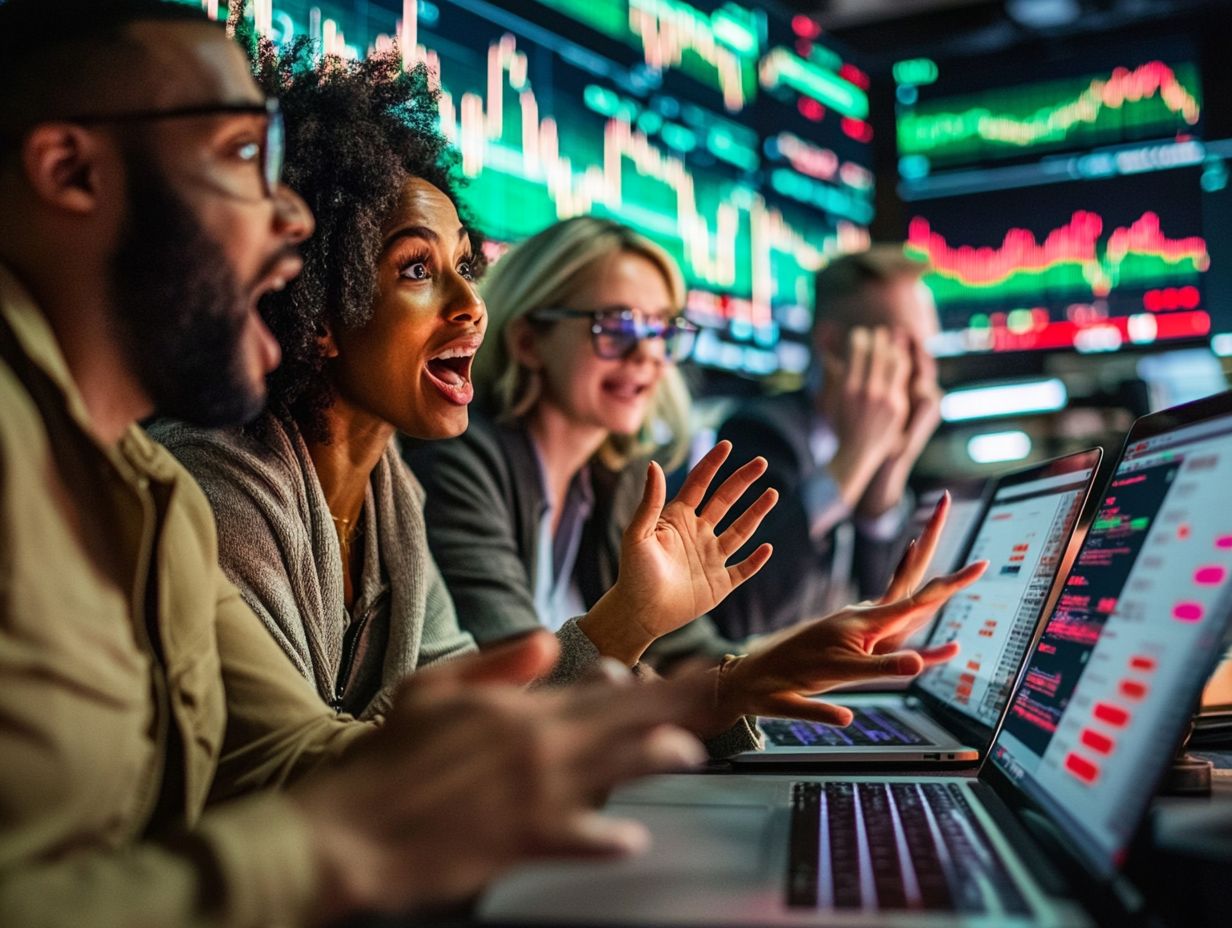
Developing a strong trading plan is essential for navigating peer pressure. It empowers you to define your decision-making strategies while accounting for thinking limits in various information conditions.
By establishing clear objectives and guidelines, you can prioritize your personal risk attitudes and investment goals over misleading cues from your peers. A robust trading plan encourages you to rely on well-researched information rather than impulsive decisions driven by groupthink.
Incorporating elements like risk tolerance assessments and performance benchmarks ensures that you maintain focus on your financial aspirations. This plan acts as your safety net, keeping you committed even amidst external pressures. Ultimately, it fosters discipline that enhances your long-term success in the volatile financial markets.
Sticking to Your Own Strategy
Sticking to your own trading strategy is essential for maintaining consistent decisions and shielding yourself from peer influence, especially during turbulent market moments.
By crafting a personalized trading plan that aligns with your unique risk tolerance and market knowledge, you can cultivate confidence in your choices. This tailored approach not only boosts your emotional resilience but also prepares you to adapt effectively to shifting market conditions.
Committing to a well-researched trading strategy minimizes the impact of external pressures, such as trends pushed by peers or prevailing sentiments in trading forums. Regularly reviewing and refining your plan based on performance metrics and market shifts can strengthen your dedication to a distinctive strategy, ensuring your trades are driven by logic rather than emotion.
The Importance of Staying True to Your Own Trading Decisions
Staying true to your trading decisions is crucial for achieving long-term investment goals. It empowers you to leverage your cognitive abilities without falling prey to the distortive effects of peer pressure.
Maintaining authenticity in your trading journey nurtures a sense of personal integrity and builds resilience in the face of market fluctuations. When you align your strategies with your unique values and objectives, you re better equipped to navigate the complexities of the financial landscape, minimizing your susceptibility to external influences.
This alignment protects you from impulsive decisions driven by others’ opinions, promoting steadiness during volatile times. By prioritizing your distinct vision, you often find enhanced confidence, leading to more informed choices and greater satisfaction with your trading experiences. This creates a positive feedback loop that encourages continuous growth and success.
Frequently Asked Questions
1. How does peer pressure affect trading decisions?
Peer pressure can push people to make decisions they wouldn t normally make. This often stems from a desire to fit in with a group or the fear of missing out on potential profits.
2. What are some negative effects of peer pressure on trading decisions?
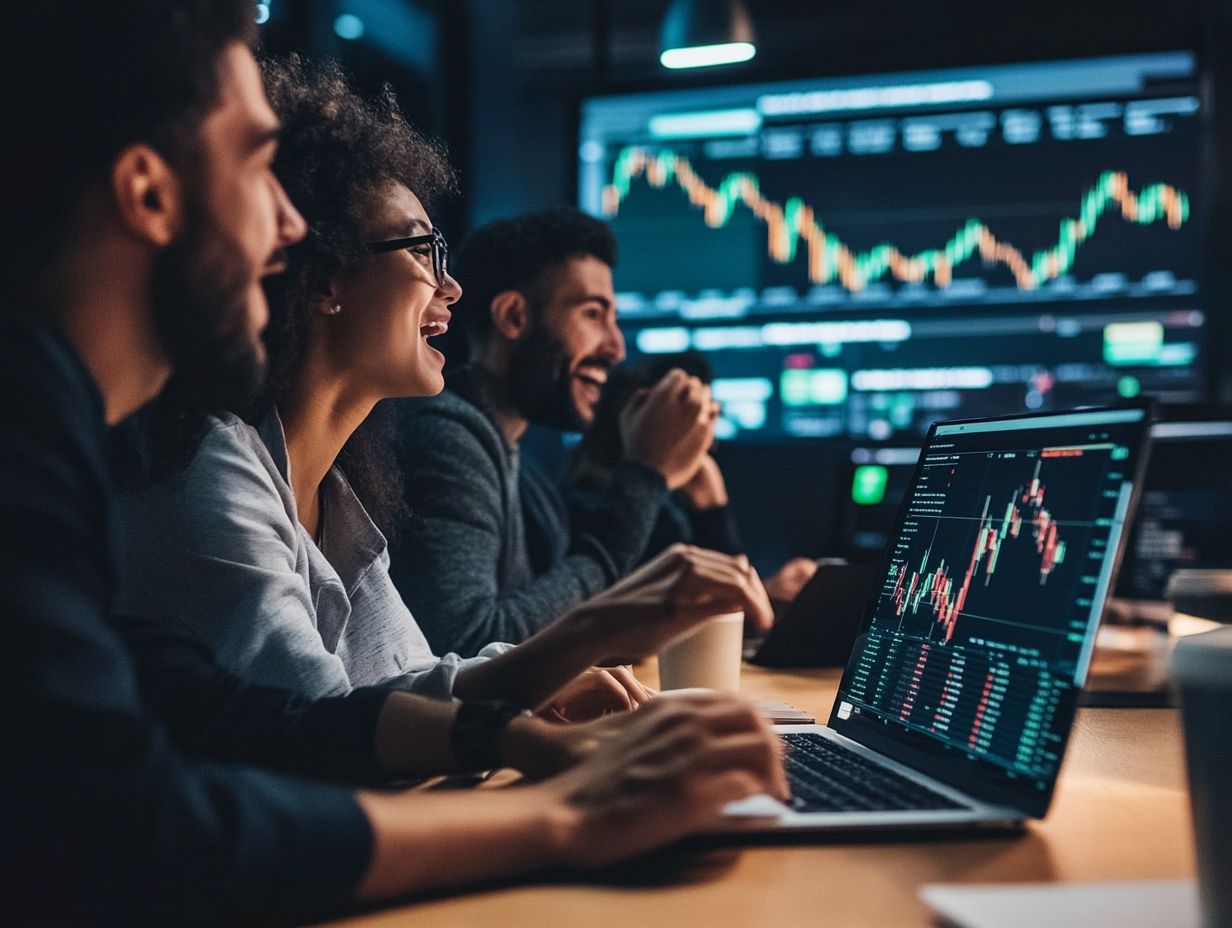
Peer pressure can lead to impulsive and irrational trading decisions, resulting in financial losses. It may also cause individuals to take on more risk than they are comfortable with, leading to potential financial ruin.
3. Can peer pressure also have positive effects on trading decisions?
Yes, peer pressure can encourage individuals to take calculated risks and explore new trading strategies they might not have considered before. It can also provide a sense of accountability and support.
4. How can one avoid succumbing to peer pressure in trading decisions?
To avoid succumbing to peer pressure, make sure you know your trading goals and risk tolerance. Surround yourself with a diverse group of traders, and seek their opinions and advice before making any decisions.
5. What are some alternative sources of advice besides peer pressure for trading decisions?
There are many sources of advice for trading decisions.
Consider financial advisors, market analysts, and online research.
Look at different sources for information.
It’s crucial to base your decisions on your own research and analysis.
6. How can peer pressure be beneficial for trading decisions?
Peer pressure can offer fresh perspectives and challenge your assumptions.
It often fosters healthy competition, motivating you to improve your trading results.

